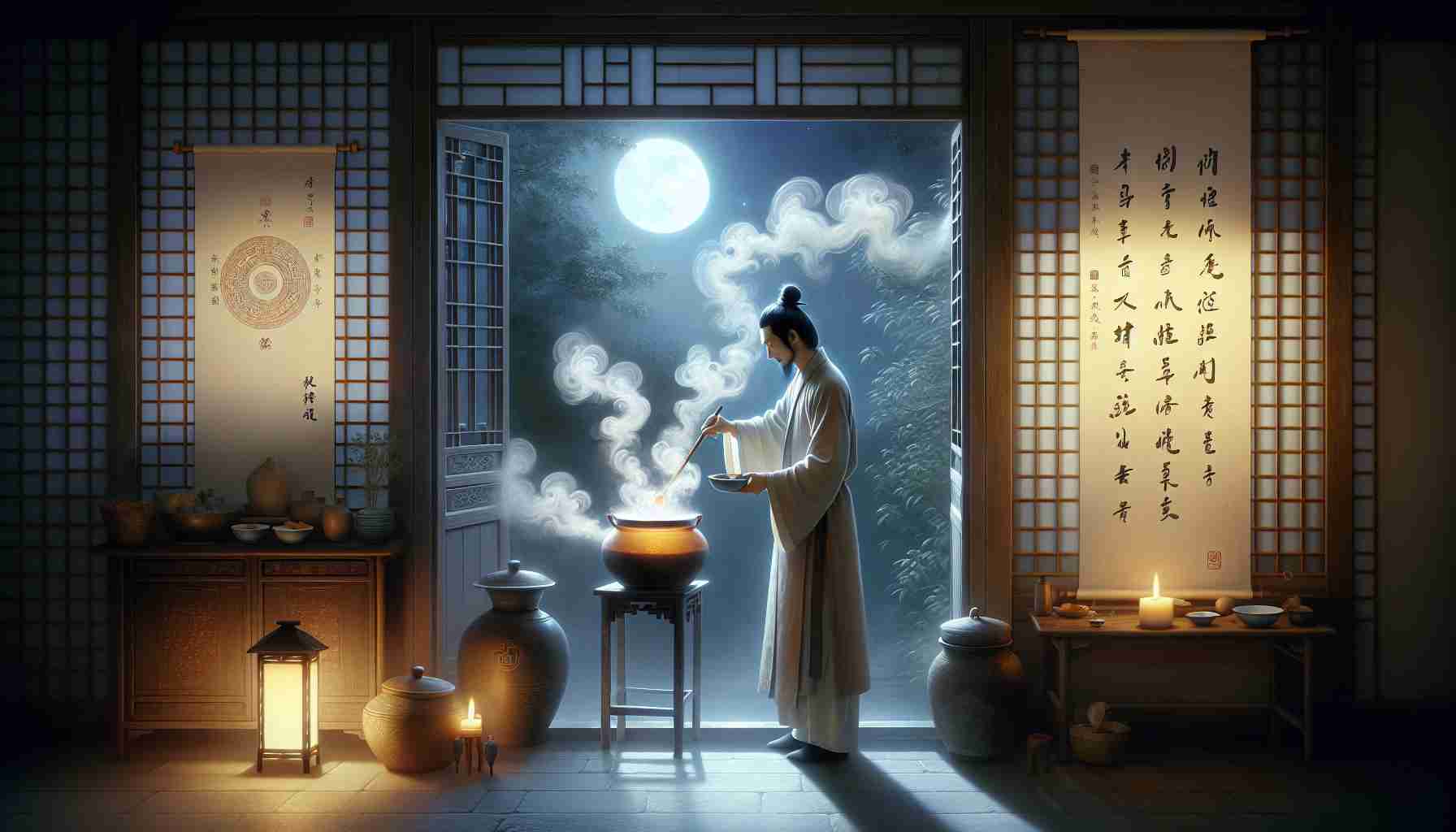

The smell of ginger and soy sauce floated through the air as I stirred the pot. My name is Lin, and I was the cook in Master Huo’s kitchen. People came from far away to eat our food, but I was never happy—not really. I worked hard, chopping and stirring from sunrise to sunset, always chasing the perfect dish.
One afternoon, I burst into tears because the tofu didn’t come out right. Again.
Master Huo, old and gentle, stepped into the kitchen just as I was about to throw the pot out the window. He said nothing at first, only smiled and sat by the wooden table in the corner. “Did the soup ask to be perfect?” he asked after a while.
I frowned. “Of course not. It's just… everyone expects so much from this kitchen. From me.”
He nodded slowly. “They come for the warmth. Not just the taste.” Then he said something strange—“You must learn to cook like the ox-cutter.”
I had no idea what that meant. “What?”
He chuckled. “Long ago, a cook named Cook Ding was famous across the land. But his fame wasn’t for fancy food. It was for how he carved oxen. He moved with ease, never forcing the knife, just following the spaces between the bones. He said he didn’t do anything—he just let the Way guide him.”
“The Way?” I asked. I’d heard of the Tao before, but I didn’t think it had anything to do with soup.
“Yes, the Tao,” Master Huo said, looking at the steam rising from my cooking pot. “When you stop trying so hard… you’ll notice it’s already there. The taste. The balance. Everything.” Then he stood up and left.
At first, I didn’t really get it. How could not trying bring good results? But later that evening, when I was alone in the kitchen, I tried something new: I let go.
I stopped measuring every grain of salt. I listened to the bubbling pot, felt the rhythm of my knife, and smelled the sweetness of the carrots as they sizzled. It was like... dancing but with food. I wasn’t forcing anything. I wasn’t even thinking much. I just flowed.
And when I served the bowls that night, something magical happened. People smiled. “This is the best meal yet,” someone said. But I hadn't done anything fancy—I had done less.
That night, I looked up at the moon and whispered to the sky: “Maybe this is what freedom really feels like.”
I didn’t change overnight. I still had bad days. But I stopped chasing perfection. Cooking, like life, wasn’t about control. It was about balance, flow, and trust. That’s the Tao.
Now, when I cook, I smile more. I laugh when the tofu crumbles. And I remember Cook Ding and Master Huo. I don’t try to force the flavor anymore—I just let it rise like steam from a quiet pot.
And that has made all the difference.
The smell of ginger and soy sauce floated through the air as I stirred the pot. My name is Lin, and I was the cook in Master Huo’s kitchen. People came from far away to eat our food, but I was never happy—not really. I worked hard, chopping and stirring from sunrise to sunset, always chasing the perfect dish.
One afternoon, I burst into tears because the tofu didn’t come out right. Again.
Master Huo, old and gentle, stepped into the kitchen just as I was about to throw the pot out the window. He said nothing at first, only smiled and sat by the wooden table in the corner. “Did the soup ask to be perfect?” he asked after a while.
I frowned. “Of course not. It's just… everyone expects so much from this kitchen. From me.”
He nodded slowly. “They come for the warmth. Not just the taste.” Then he said something strange—“You must learn to cook like the ox-cutter.”
I had no idea what that meant. “What?”
He chuckled. “Long ago, a cook named Cook Ding was famous across the land. But his fame wasn’t for fancy food. It was for how he carved oxen. He moved with ease, never forcing the knife, just following the spaces between the bones. He said he didn’t do anything—he just let the Way guide him.”
“The Way?” I asked. I’d heard of the Tao before, but I didn’t think it had anything to do with soup.
“Yes, the Tao,” Master Huo said, looking at the steam rising from my cooking pot. “When you stop trying so hard… you’ll notice it’s already there. The taste. The balance. Everything.” Then he stood up and left.
At first, I didn’t really get it. How could not trying bring good results? But later that evening, when I was alone in the kitchen, I tried something new: I let go.
I stopped measuring every grain of salt. I listened to the bubbling pot, felt the rhythm of my knife, and smelled the sweetness of the carrots as they sizzled. It was like... dancing but with food. I wasn’t forcing anything. I wasn’t even thinking much. I just flowed.
And when I served the bowls that night, something magical happened. People smiled. “This is the best meal yet,” someone said. But I hadn't done anything fancy—I had done less.
That night, I looked up at the moon and whispered to the sky: “Maybe this is what freedom really feels like.”
I didn’t change overnight. I still had bad days. But I stopped chasing perfection. Cooking, like life, wasn’t about control. It was about balance, flow, and trust. That’s the Tao.
Now, when I cook, I smile more. I laugh when the tofu crumbles. And I remember Cook Ding and Master Huo. I don’t try to force the flavor anymore—I just let it rise like steam from a quiet pot.
And that has made all the difference.